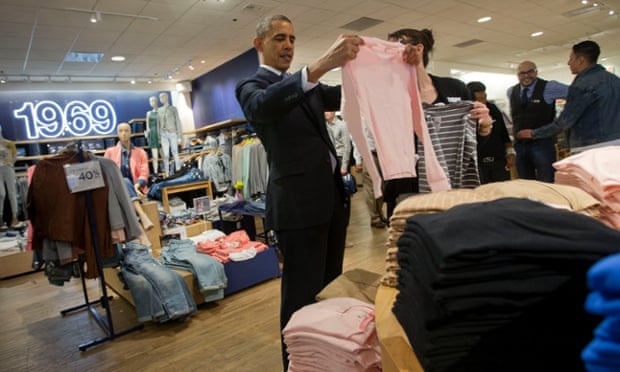Greece’s government has pledged reform to try and satisfy the demands of creditors in Europe while maintaining its pre-election pledges.
Below are some of the main points from Greece’s list of reforms – contained in a letter from the Greek government to its European partners – alongside analysis and comment from BBC economics correspondent Andrew Walker.
Fiscal structural policies

Tax policies
- Broaden the definition of tax fraud and evasion, making it harder to avoid taxes
- Improve the collection of VAT, fighting evasion using technology
- Create “a new culture of tax compliance” to make sure that all sections of society – particularly the wealthy – “contribute fairly to the financing of public policies”
- Work with European and international partners to establish a database that helps tax authorities assess the veracity of previous income tax returns
Andrew Walker: Improving tax collection has been a persistent theme in the discussions between Greece and its bailout lenders. It’s an area where it’s easy to see a shared view between the two sides. The idea of getting the well-off to contribute to the financing of public policies is right in line with Syriza’s wider agenda. Anything that brings in more revenue and so helps stabilise the government finances is likely to be welcome to the lenders as well. Creating a new culture of tax compliance is a bit “motherhood and apple pie”. Who could object? But it will take a long time to achieve.
Public spending
- Work towards improving the efficiency of central and local government departments
- Identify cost-saving measures through a thorough spending review of every ministry, reorganising non-salary and non-pension expenditures which account for “an astounding 56% of total public expenditure”
- Use cross-checking to validate benefits to “help identify non-eligible beneficiaries”
- Control health expenditure and improve medical services, while granting universal access to healthcare
Andrew Walker: The lenders are also likely to welcome the commitment to review every area of government spending and to identify cost savings.

Social security
- Take measures to continue modernising the pension system, reducing the social and political pressure for early retirement
Public administration and corruption
- Make the fight against corruption a national priority
- Target the smuggling of fuel and tobacco products, and tackle money laundering
- Activate legislation to ensure that media outlets pay market prices for the broadcast frequencies they use
Andrew Walker: There is more motherhood and apple pie on tackling corruption, smuggling and money laundering. The aim is not controversial. But will they be able to achieve significant improvements?
Financial Stability Instalment schemes
- Improve enforcement methods for collecting unpaid taxes
- De-criminalise lower income debtors with small liabilities
Banking and non-performing loans
- Collaborate with banks to avoid auctions of the main residence of households that are below a certain income threshold, while “punishing strategic defaulters”
- Take measures to support the most vulnerable households, and modernise bankruptcy laws
Policies to promote growth

Privatisation and public asset management
- Commit not to roll back privatisations that have been completed, and to respect tender processes that have already been launched
- Review privatisations that have not yet been launched with a view to maximising the state’s long-term benefits
Andrew Walker: The line on privatisation is striking – accept those that have been completed and respect those that are underway. New cases are not ruled out, far from it. The letter only calls for an emphasis on maximising public revenue – which is after all one of the reasons there is a privatisation programme in the first place. How will this go down with Syriza, especially the left of the party? Even so the IMF Managing Director Christine Lagarde isn’t impressed on this point. Privatisation is one of a number of areas where she notes “a lack of unequivocal undertakings to continue already agreed policies”.
Labour market reforms
- Phase in “a new ‘smart’ approach to collective wage bargaining that balances the need for flexibility with fairness”
- Over time, to raise the minimum wage in a manner that safeguards competitiveness and employment prospects
Andrew Walker: Also on that list is labour market reforms, another area that Ms Lagarde of the IMF regards critical for Greece. Even so, the party is likely to be suspicious at best of some of the labour market stuff that is included. Linking the minimum wage with productivity and competitiveness could well limit the scope for raising it, which was a central element in the party’s election offer.
Statistics
- Maintain the institutional independence of Greece’s statistical agency, ensuring that it has adequate resources and that its next president is chosen in a transparent manner
Andrew Walker: The independence of the statistical authority might play into the debt debate later. One idea has been to use growth-linked debt payments. That has more chance of getting off the ground if the growth data come from a genuinely independent and adequately resourced agency.
Humanitarian crisis

- Address needs arising from the recent rise in absolute poverty though measures such as food stamps
- Evaluate a pilot minimum income scheme, with a view to extending it nationwide
- Ensure that the fight against the humanitarian crisis does not have a negative effect on the finances
Andrew Walker: The humanitarian crisis had to be in there in some form. It was so central to Syriza’s political campaign. But the commitment to use non-pecuniary measures and to ensure the fight has no negative fiscal effect shows how hemmed in the Greek government is. It will be hard to land many blows with such constraints on how they can fight.
BBC- February 24th, 2015





